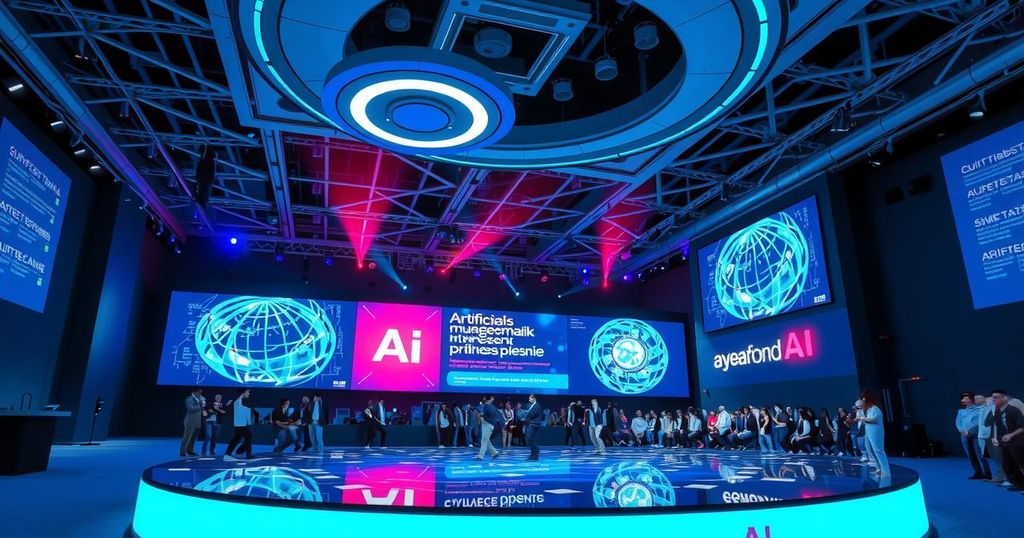Apple Announces New AI Features at WWDC 25
At WWDC 25, Apple unveiled new AI features, including live translation, visual search, and a workout assistant, integrating them into popular apps. The company plans to open its large language model to third-party developers, signaling a new direction in AI development. Skepticism remains regarding the slow rollout of past updates. Apple may partner with Alibaba for AI initiatives in China, but delays due to tariffs persist.
Apple took center stage at the Worldwide Developers Conference on June 9, drawing attention with its announcement of new artificial intelligence features. Highlighting its innovations, Apple unveiled live translation tools, a visual search capability, and a workout assistant in testing. Not just standalone, these updates will also be integrated with popular apps like Reminders, Messages, and Apple Wallet, changing how users interact with their devices.
Craig Federighi, the company’s senior vice president of Software Engineering, emphasized the journey Apple started last year, aiming to deliver helpful and user-friendly intelligence while prioritizing privacy. “Now, the models that power Apple Intelligence are becoming more capable and efficient,” he noted, hinting at a deeper integration of AI across the company’s operating systems.
Moreover, Apple seems set on expanding its reach in AI by opening its large language model to third-party developers. This move allows app creators to leverage Apple Intelligence, potentially enhancing user experiences to be intelligent and available offline without compromising on privacy. In a news release, the company stated these developments will be at no additional cost for developers.
As excitement builds, Federighi hinted at forthcoming updates for Siri later this year. This could mark a shift for the voice assistant, which has seen slower adoption of AI features compared to competitors. With these new announcements, Apple appears determined to reclaim its footing in the rapidly evolving AI landscape.
There’s speculation that Apple’s opening of Foundation Models aims to encourage development of innovative AI applications and features. “We think this will ignite a whole new wave of intelligent experiences in the apps users rely on every day,” said Federighi, stressing their long-term vision.
But, there’s some skepticism around Apple’s pace regarding software updates; after last year’s ambitious AI plans, the impact has been underwhelming. “They had the big vision announcement last year. Not a lot of progress this year as they tried to build it. It is hard to build,” remarked Alex Kantrowitz of the Big Technology podcast on CNBC, drawing attention to the challenges Apple faces.
Further complicating matters, Apple reportedly plans to collaborate with Alibaba on AI initiatives in China. However, progress here seems delayed due to ongoing tariff tensions between the U.S. and China, raising questions about the partnership’s timeline. Investor Dan Ives noted that confidence remains high for this launch despite the hurdles.
All in all, Apple’s new AI features present an exciting direction for the tech giant. As it unveils new tools and partnerships, it could be a pivotal moment in reshaping user experiences with their devices.
In summary, Apple’s recent announcements at WWDC 25 indicate a significant step forward in their AI journey. With new features being integrated into key apps and the opening up of their large language model to developers, Apple is aiming to enhance user experiences while prioritizing privacy. However, past delays and challenges raise concerns about their execution speed. With a promising partnership with Alibaba in the works, the tech community is watching closely to see how these developments unfold in competitive AI landscapes.
Original Source: www.usatoday.com




Post Comment